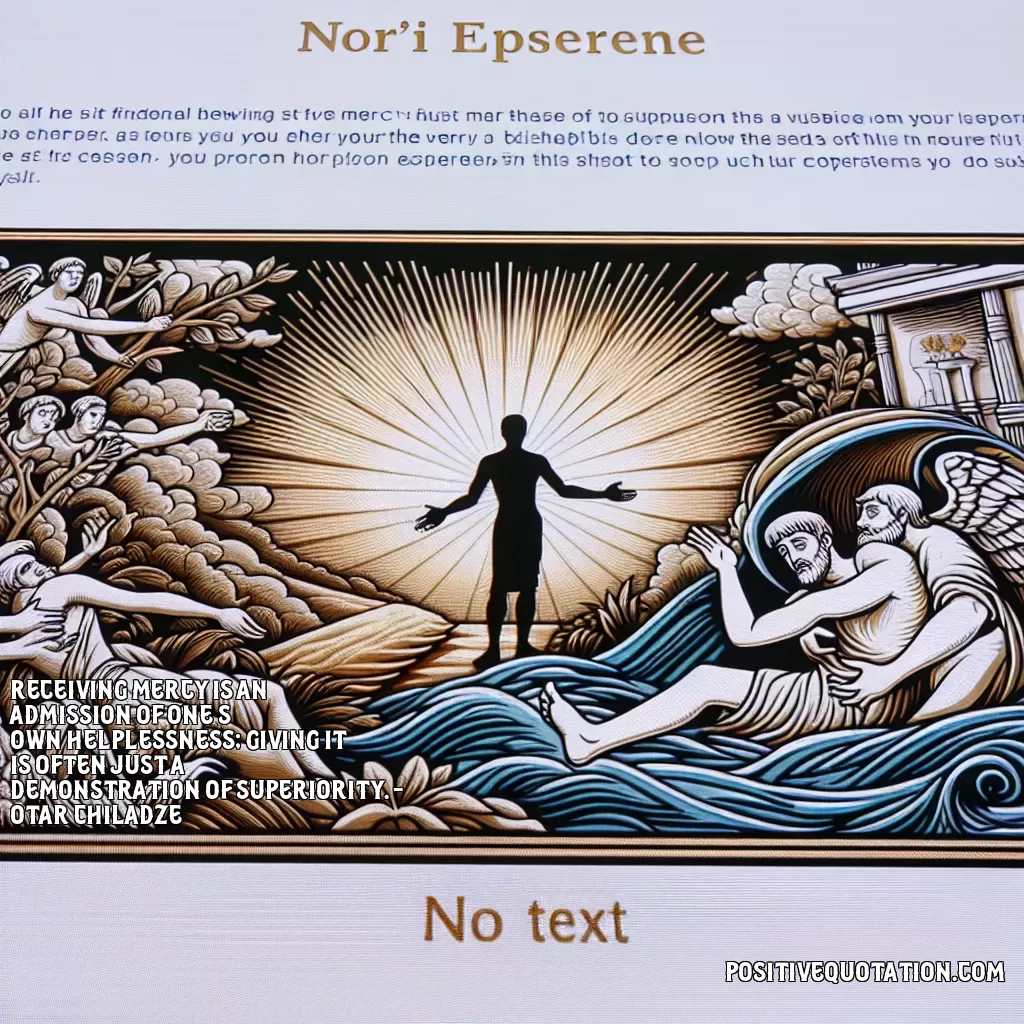
Receiving mercy is an admission of one’s own helplessness; giving it is often just a demonstration of superiority. - Otar Chiladze

Receiving mercy is an admission of one’s own helplessness; giving it is often just a demonstration of superiority. - Otar Chiladze
The quote by Otar Chiladze, "Receiving mercy is an admission of one’s own helplessness; giving it is often just a demonstration of superiority," delves into the complex dynamics of human interactions involving mercy, power, and vulnerability. When someone receives mercy, it implies a recognition of their own vulnerability and helplessness. In many situations, receiving mercy involves acknowledging that one lacks the means to change a particular circumstance or evade a negative consequence without aid. This admission can be deeply humbling, as it requires one to confront their own limitations and depend on the benevolence of another. Receiving mercy, therefore, is not merely about obtaining relief; it's also about embracing humility, almost surrendering one's control and placing trust in the mercy-giver's decision and kindness. Conversely, when someone gives mercy, it often highlights a power dynamic where the giver holds a position of superiority or dominance. The act of granting mercy can underscore the giver's control over the situation, showcasing their ability to impact the outcome based solely on their discretion. In such scenarios, mercy isn't merely a compassionate gesture but can be seen as an assertion of power. The act of granting mercy may reflect the giver’s superiority, as they possess the authority to alter someone's fate. While mercy can be an act of genuine kindness and empathy, in certain contexts, it may also be perceived as an exercise of authority, reinforcing the social or hierarchical gap between the giver and the receiver. This quote encourages reflection on mercy's dual nature and the underlying dynamics when it is both given and received, prompting a deeper understanding of human vulnerability and power in relational contexts.
Quote By: Otar Chiladze
Otar Chiladze (1933-2009) was a renowned Georgian author, playwright, and translator, celebrated for his contributions to modern Georgian literature. His works often explore complex themes of identity, culture, and the human condition, reflecting the political and social changes in Georgia throughout the 20th century. Chiladze's unique narrative style and philosophical depth have earned him a significant place in Georgian literary history, with notable works including "A Man Is the Man" and "The Song of the Sun."
Bio added on: 2025-02-15 14:54:45